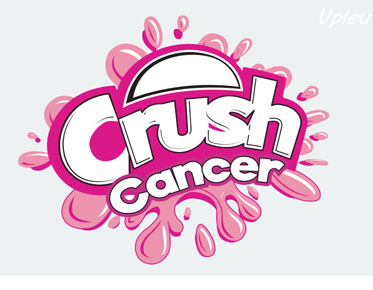Exploring All Color Modes in Vector Art Design
In the
world of vector art design, understanding color modes is essential to create
visually captivating and accurate designs. While RGB and CMYK are the most
commonly used color modes, there are other options that offer unique
advantages. In this article, we will explore the fundamentals of RGB and CMYK,
as well as delve into additional color modes, to help you unleash the full
potential of your vector art designs.
Discover how Eagle Digitizing's vector art conversion services can assist in
optimizing color accuracy and achieving remarkable results.
I. RGB: Red, Green, Blue
RGB is
an additive color model used for digital displays and screens. By combining
varying intensities of red, green, and blue light, a wide spectrum of colors
can be achieved. RGB is ideal for designs intended for electronic mediums such
as websites, social media, and digital presentations.
II. CMYK: Cyan, Magenta, Yellow, Black
CMYK is
a subtractive color model primarily used for printing purposes. By layering
cyan, magenta, yellow, and black ink, a wide range of colors can be reproduced
on paper. CMYK is the preferred color mode for designs intended for physical
printing, such as brochures, business cards, and promotional materials.
III. Pantone Matching System (PMS)
The Pantone Matching System is a standardized color system widely used in the printing industry. It offers a comprehensive range of predefined colors, each assigned a unique code, ensuring consistent color reproduction across different printing processes. PMS colors are commonly used for logos, brand identity, and other designs requiring precise color accuracy.
IV. Spot Colors:
Spot
colors are single, premixed colors used in printing, often referred to by their
assigned names or numbers. These colors are created using specific ink
formulations and can be used to achieve precise and consistent color results.
Spot colors are particularly useful for designs that require vibrant, solid
colors or when printing on non-standard substrates.
V. Grayscale and Monochromatic:
Grayscale
is a color mode that represents shades of gray ranging from black to white. It
is commonly used to create black and white or grayscale images and designs.
Monochromatic color mode, on the other hand, uses a single color in different
shades, tints, or tones. This color mode can add depth and visual interest to a
design while maintaining a cohesive color scheme.
VI. Duotone:
Duotone
is a color mode that combines two colors to create a striking and dramatic
effect. By adjusting the contrast and brightness of the two colors, designers
can achieve unique and captivating results. Duotone is often used in print
media, such as magazines and posters, to create visually stunning images.
VII. Indexed Color:
Indexed color mode is commonly used for web graphics and images with a limited color palette. It reduces the file size by storing a palette of up to 256 colors and assigning each pixel in the image to a specific color index. This color model is suitable for designs that require efficient file sizes and are intended for digital platforms.
VIIII. Eagle Digitizing's Vector Art Conversion Services:
Eagle
Digitizing's vector art conversion services are designed to ensure accurate and high-quality color representation
in vector art designs. Their expert team can assist in optimizing color modes,
including PMS, spot colors, grayscale, duotone, and more, to achieve the
desired visual impact and color accuracy in your designs.
FAQs:
1. Can
Eagle Digitizing match Pantone colors in vector art designs?
Yes,
Eagle Digitizing's vector conversion services can match Pantone colors accurately in your designs. They have
extensive knowledge and experience in color matching to ensure the best
representation of your brand's specific colors.
2. Can
Eagle Digitizing convert my existing vector art design to a different color
mode?
Yes, Eagle Digitizing can assist in
converting your vector art design to a different color mode, such as grayscale
or duotone, based on your requirements. Their expert team will ensure a
seamless transition while maintaining the integrity and quality of your design.
3. Are
there any limitations when converting between different color modes?
While
converting between color modes can sometimes result in slight color shifts due
to differences in color gamuts, Eagle Digitizing's experts utilize their skills
and expertise to minimize any deviations and ensure the best possible color
matching and representation.
Conclusion: Embrace the Full Spectrum of Color Modes in Vector Art Design
Understanding
and utilizing different color modes can significantly enhance the visual impact
and accuracy of your vector art designs. Whether it's RGB and CMYK for digital
and print mediums, Pantone Matching System for consistent branding, or the
versatility of spot colors, Eagle Digitizing's vector art services empower you to unleash your creativity while
ensuring precise and captivating color representation.



